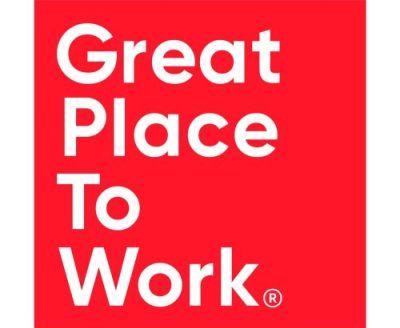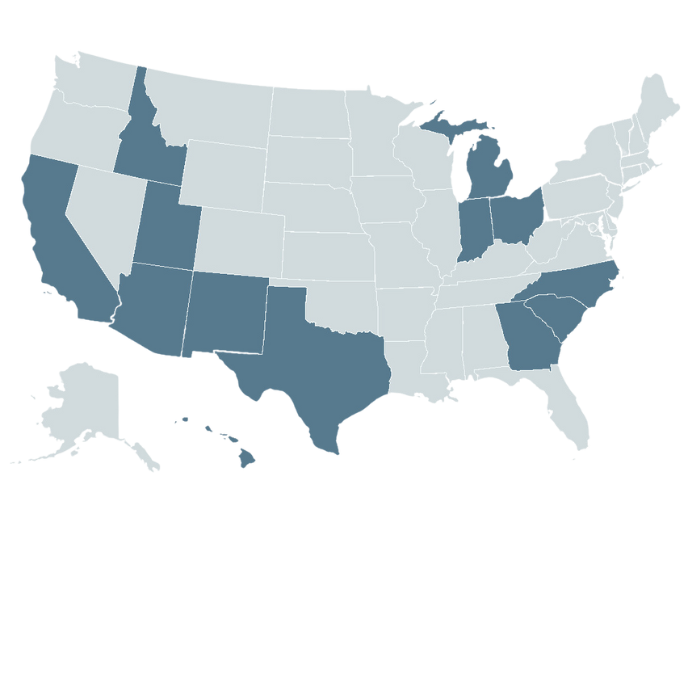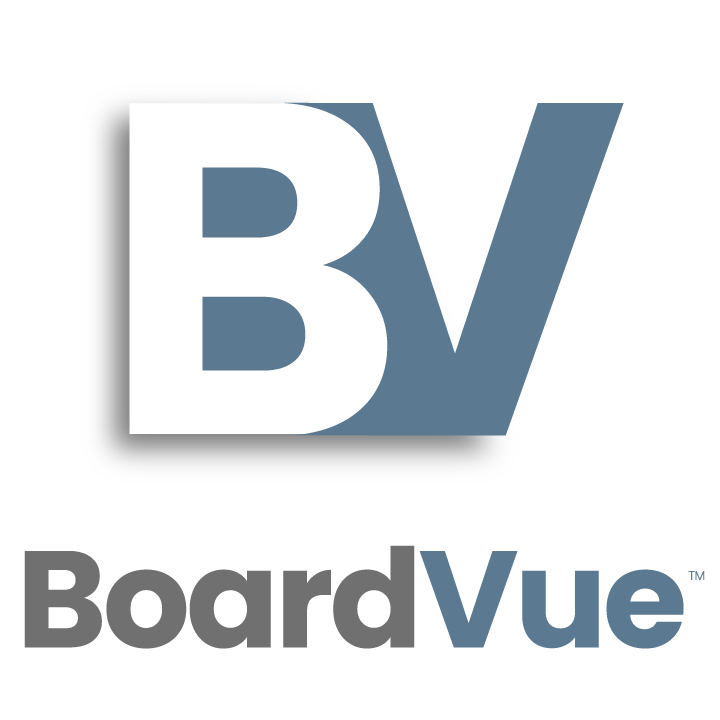Homeowners Associations (HOAs) comprise a Board of Directors responsible for managing the community. A key component of effectively managing a community is the regular meetings of the Board of Directors. These meetings are vital for the success of a community since they provide a platform for discussion and decisions that shape the community’s future. An HOA management company can assist with Board meetings by providing experienced staff and resources to help the Board prepare and conduct meetings. They can also offer Board members guidance on meeting protocols and help develop agendas that ensure the Board covers all relevant topics and issues efficiently. By understanding the types of meetings, preparing for them, and conducting them effectively with the help of an HOA management company, Board members can ensure the success of their community.
Types of HOA Meetings
Various types of HOA meetings help ensure the organization is functioning correctly. This section will explore the different types of HOA meetings and their importance.
HOA Regular Session/Open Meeting
Regular sessions, also known as Open Meetings, are the most common homeowner association gatherings, usually held monthly, quarterly, or as needed. This is the forum to conduct the community’s business, such as financials, budget adoption, and other operations. Homeowners/HOA members can voice their opinions, concerns, and issues to the Board before they vote on matters.
HOA Executive Session/Closed Meeting
A closed or executive session in an HOA is a meeting of the association’s Board of Directors and/or other officers not open to the general membership. These meetings are typically held to discuss sensitive or confidential information, such as personnel matters, contract negotiations, or legal issues. Closed meetings are not open to the public, and minutes from these meetings are not typically available for public viewing.
HOA Work Sessions
Work sessions are meetings the Board uses to discuss and review business in detail and are open for the membership to attend. Decisions are typically not made during these meetings. They are meant to discuss budgets, landscape projects, or other topics in-depth.
HOA Committee Meetings
Committee meetings follow a similar structure to open Board meetings. Members are notified of the meeting date and time within a range of 7 to 30 days in advance, depending on the HOA guidelines for the meeting; a lead committee member is responsible for taking minutes and keeping track of important information. Committees commonly provide committee reports to the Board to present at open meetings.
HOA Special Meeting
Special meetings are called for a specific reason and can only address items included in the meeting notice, usually outside the scope of general business. Examples of special meetings would be the authorization of an amendment of the governing documents, a recall of one or more Board of Directors, vote on other issues pursuant to the association’s documents and special assessments.
HOA Emergency Meeting
An emergency meeting for an HOA is a meeting to address unforeseen events or urgent situations requiring immediate action. Examples of emergency meetings include addressing a natural disaster, a sudden financial crisis, or a security issue.
HOA Annual Meeting
Annual Meetings for HOAs are crucial for keeping the association’s business moving forward. In addition to holding the yearly HOA Board elections, where new members are elected to the Board of Directors by their fellow homeowners, Annual Meetings also serve to update Associations on what is happening in the community. It is also when the Board presents the Annual budget to the membership. The timing of your community’s Annual Meeting depends on the requirements indicated by your Association’s Bylaws. The meeting is typically held at the same time each year. Planning the Annual gathering should begin several months before the meeting date to achieve the best results.
Preparing for an HOA Board Meeting
Preparing for an HOA meeting can be daunting, but the meeting can be successful and productive with the right planning and preparation. The Board members and the HOA management company should ensure the meeting runs smoothly, such as setting an agenda, preparing materials, sending out notices, making sure the meeting is legal, setting up the meeting space, having a quorum, and appointing a meeting chair. By taking these steps, the Board and the HOA can ensure that the meeting is successful.
Establishing HOA Meeting Agendas
One of the most important steps to having a productive HOA meeting is to start with a clear agenda. Make sure your agenda is the roadmap for conducting the meeting. The agenda should be distributed to all members before the meeting, allowing them to prepare for any discussions or decisions that need to be made. The agenda should be well-organized and include all relevant topics, such as upcoming events, financial updates, and ongoing projects. A typical agenda should include the following items:
- Call to order
- Roll call
- Approval of minutes from the previous meeting
- Reports from officers and committees
- Old business
- New business
- Open forum
- Adjournment
Prepare materials
HOA Managers can assist in preparing any materials needed for the meeting, such as financial reports, minutes from previous meetings, or any other documents that will be discussed.
Proper Notice of Meetings
HOA Boards need to provide notice of their Board meetings in accordance with state laws and the HOA’s governing documents. In general, notice must be in writing, and it must include the date, time, and location of the meeting, as well as the agenda. The notice must be given a certain number of days in advance of the community’s meeting, depending on state law and the HOA’s governing documents. There are several methods that HOA Boards can use to provide notice of their meetings. One common method is to post the notice on the community’s bulletin board or website. The notice can also be mailed or emailed to all homeowners, depending on what the governing documents allow. Keeping track of how and when notice is provided is essential to ensure compliance with state law and the governing documents.
Encourage Member Participation
One key component of a successful HOA meeting is member participation. Encouraging members to participate in discussions can help foster a sense of community and lead to better decision-making. This can be achieved by creating an open and welcoming environment, actively seeking out members’ opinions, and giving everyone a chance to speak.
Conducting an HOA Meeting
During the meeting, the HOA President should follow the agenda, keep discussions on track, and allow all members to speak. It’s important to keep the following points in mind while conducting the Board meeting:
- Start the meeting on time.
- Begin with a roll call to ensure all Board members are present.
- Discuss the items on the agenda in the order they are listed.
- Encourage all members to participate in the discussion.
- Stay on topic and avoid discussing items that are not on the agenda.
- Make sure all decisions are made through a formal vote and recorded in the meeting minutes.
Recording the Meeting Minutes
Keeping accurate and detailed records of meetings is crucial for the smooth functioning of the association. Proper documentation ensures that decisions made during the meetings are well-documented and serve as a reference for future meetings. To achieve this, Board members need a well-structured HOA meeting minutes template that captures all the important details discussed during the meeting.
- Introduction: The introduction is the opening paragraph of the minutes and should contain basic information such as the name of the association, date, time, and location of the meeting. Ensuring the date and time are accurate is essential to avoid confusion or conflicts.
- Attendance: Who attended the meeting, including members and any guests?
- Approval of Previous Meeting Minutes: Before moving to the current agenda, the minutes should note if the previous meeting’s minutes were approved and amended or if any discrepancies were raised.
- Agenda Items: The bulk of the meeting minutes should cover the agenda items discussed during the meeting. Each agenda item should have its section, including a title and a brief explanation. Document all motions, amendments, and votes, including the names of members who moved, seconded, and voted.
- Open Forum: The minutes should also capture any comments, concerns, or suggestions made by the members during the open forum session. Record all contributions, and the secretary ensures comments stay relevant and comply with association policies.
- Adjournment: The minutes should end with a closing paragraph indicating the time of the meeting’s adjournment.
Follow Meeting Protocol
Follow the established meeting protocol, such as a parliamentary procedure or Robert’s Rules of Order, to ensure that the meeting is conducted fairly and efficiently.
Establish Quorum
HOA quorum (the minimum number of members required to be present to conduct association business) The association’s bylaws usually define HOA quorum requirements, which vary based on the association’s size and the type of decisions being made.
Role of the HOA President
The President is responsible for presiding over the meeting, maintaining order, and ensuring that all members can participate in the discussion. They should be familiar with Robert’s Rules of Order and should be impartial in their handling of the meeting.
Making a Motion
During an HOA meeting, motions introduce business to the Board. Main motions require a ‘second’ before they can be discussed, and the secretary must repeat the motion for accuracy. The motion can be modified before the Chair states it, and it can also be amended after being stated by the Chair. If necessary, a motion can be withdrawn up until the time the Chair has stated it. It is crucial to note that a motion must be considered if it has both a first and second on the table. Before the Board votes, homeowners in attendance must be given the opportunity to speak about an agenda item. Furthermore, the Board must discuss the motion before conducting a Board vote. Using simplified Robert’s Rules of Order is advisable to govern the meeting. In most cases, the President of the Board only votes in the event of a tie.
Here’s a simplified example of how this process might work:
1. The President calls for a motion on an agenda item, and a Board Member indicates they make a motion.
2. Example: “I make a motion to accept the bid from XYZ Landscaping to replace granite in tract C of the common areas at the cost of $5,000.00.”
A second Board member will second the motion.
3. The President will restate the motion and then call for a discussion.
4. The president will call for a vote: “All in favor say aye, opposed nay.”
5. The Board President will announce the results of the motion, for example, “Motion carries unanimously.” Or, “Motion fails with a vote of 2 ayes, 3 nays.”
Rules of Debate:
Conduct the debate respectfully, ensuring each member can share their opinion. The rules of debate include speaking in turn, not interrupting other speakers, and avoiding personal attacks. The chairperson can also set time limits for each speaker to ensure the discussion remains on track.
Voting Procedures:
Voting is an essential part of the parliamentary procedure. The rules require a quorum, or a minimum number of members, to be present for a vote.
Dealing with Conflict
To eliminate or minimize conflicts during meetings, be proactive. Set ground rules early, like requiring the chair to recognize speakers before they speak. “The chair may limit the amount of time those wishing to speak, the number of times they speak, etc. Put those ground rules in writing and distribute/review them at the beginning of the meeting. Those who attempt to provide unsolicited input should be called “Out of Order.” It may take several meetings to educate the members; however, remaining on task and sticking to the agenda is critical.
What Happens After the Meeting
After the meeting, the board typically sends out minutes summarizing discussions and decisions made. These notes are essential for keeping all community members informed and up-to-date. If you missed the meeting, review the notes to stay informed.
Benefits of Effective HOA Meetings
Conducting regular meetings to make decisions is a key part of an HOA Board’s role in managing operations. Below are the benefits of conducting effective HOA meetings.
- Clear Communication and Transparency
- Efficient Decision Making
- Saves Time and Money
- Promotes Community Engagement
- Better Planning and Goal Setting
The Board must provide a unified front. Regarding discussions, the individual Board members need to present different views on a given subject. You will confront complex issues, such as:
- Potential Assessment Increases
- Contract Changes
- Homeowner Appeals
- Enforcement Action
- Foreclosure Action
This may sometimes involve having heated or passionate discussions and debates. However, once the vote is taken and the majority rules, you should put personal differences aside and move forward. Most importantly, always respect fellow Board members and those attending the meeting.
In Summary
HOA Board meetings are essential for managing communities and shaping their future. Understanding meeting types and preparing with an HOA management company ensures success. Member participation, meeting protocols, and proper documentation are key for effective meetings. Successful meetings lead to clear communication, efficient decisions, and time savings. They also boost community engagement, improve planning, and support goal setting. By prioritizing these meetings and seeking help when needed, Board directors can better manage their community and increase resident satisfaction.





































